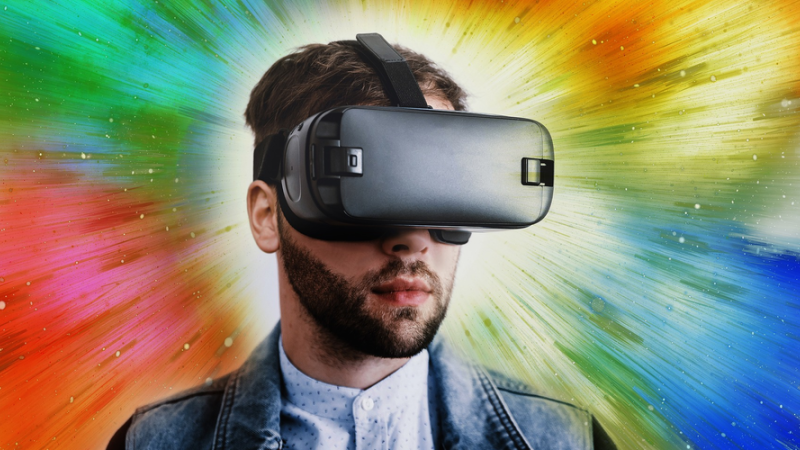
Our daily lives are continuously being transformed by digital technologies, and the gaming industry is no exception. As one of the most innovative and dynamic sectors, the gaming industry is always at the forefront of exploring new technologies. Among the numerous technologies making waves in the industry, none has captured the imagination of gamers and developers alike as much as Virtual Reality (VR). This technology has the potential to redefine the gaming experience completely, offering immersive, interactive, and realistic gameplay that transcends the boundaries of traditional gaming.
Paradigm Shift: From Passive to Immersive Gaming

VR in gaming is a paradigm shift from passive engagement to a fully immersive experience. Traditional video games confine the player to the boundaries of a screen. However, VR gaming expands the player's perspective, immersing them directly into the game world. By wearing a VR headset, gamers can experience a 360-degree view of the game environment, interact with game characters and items as if they were real, and perform actions just as they would in the physical world. This level of immersion and interactivity brings a new dimension to gaming, making it more engaging and thrilling. Various gaming consoles, such as the Oculus Rift, PlayStation VR, and HTC Vive, are leading this VR revolution, offering gamers an unmatched VR gaming experience.
The Evolution of Game Design and Development
VR has revolutionized not only the gaming experience but also the process of game design and development. Creating a VR game is a highly complex task that requires a deep understanding of VR technology, player psychology, and game design principles. Developers must consider various factors such as the spatial orientation of the game environment, the motion and interaction of game characters, and the sensory feedback to the player. Furthermore, they must ensure that the game is comfortable for the player and does not cause motion sickness, which is a common issue in VR gaming. Despite these challenges, game developers are harnessing the potential of VR to create innovative games that push the boundaries of creativity and technology.
The Economic Impact of VR on the Gaming Industry

The proliferation of VR in the gaming industry has also had a significant economic impact. The global VR gaming market was valued at $13.5 billion in 2018 and is expected to reach $45.2 billion by 2025, according to a report by Statista. This exponential growth is driven by the increasing demand for VR games, the advancement of VR technology, and the growing investment in VR game development. As VR technology becomes more accessible and affordable, more and more people are expected to join the VR gaming bandwagon, further propelling the growth of the market.
The Future of VR in Gaming: Challenges and Opportunities
While VR has made a significant impact on the gaming industry, it is still in its early stages of development. There are several challenges that need to be addressed to realize the full potential of VR in gaming. These include the high cost of VR headsets, the lack of quality VR games, the health concerns related to prolonged use of VR, and the technical limitations of VR technology. However, these challenges also present opportunities for innovation and improvement. As technology evolves, we can expect to see more advanced and affordable VR headsets, a greater variety of high-quality VR games, and solutions to the health and technical issues associated with VR. Furthermore, the convergence of VR with other emerging technologies, such as artificial intelligence and 5G, could open up new possibilities for VR gaming, making it even more immersive, interactive, and exciting.
In conclusion, VR is reshaping the gaming industry in profound ways, offering gamers an unparalleled gaming experience and developers a new canvas for creativity. While the road ahead is fraught with challenges, the opportunities are immense. With continuous innovation and development, VR has the potential to transform the gaming industry in ways we can only imagine.





